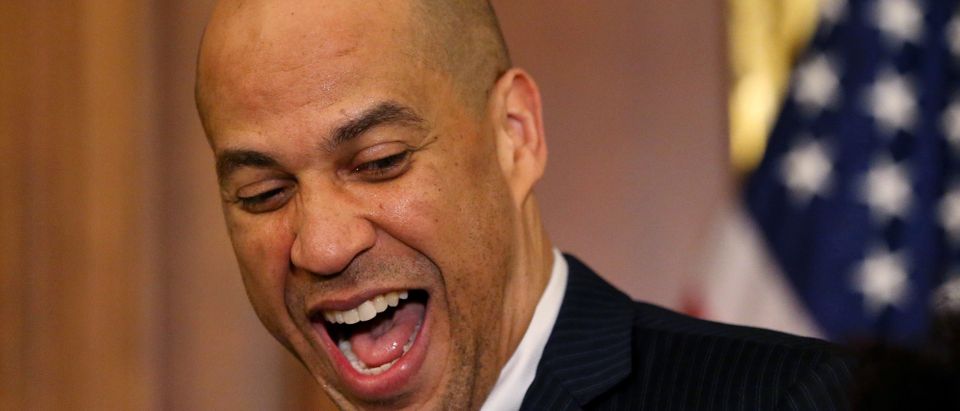Attempting to distinguish himself in an overcrowded Democratic primary, New Jersey Sen. Cory Booker came out with a plan that he claims will address housing affordability. He’s wrong — it will only make the problem worse.
Booker’s plan involves offering a tax credit to any American who pays more than 30 percent of their before-tax income in rent, the value of which would equal the difference between the fair-market rate for the area and the amount that the renter actually pays.
What is especially bizarre about Booker’s plan is that the solution to sky-high rent and housing rates is blissfully simple — build more housing!
Housing crises arise largely from a straightforward application of supply and demand concepts economists learned back in high school. When the demand outstrips the supply, and supply is constrained by artificial factors such as zoning and land-use regulations, prices will rise. Yet primary candidates in the Democratic field such as Booker, Massachusetts Sen. Elizabeth Warren, and California Sen. Kamala Harris have all felt the need to invent Rube Goldberg-esque plans to try to tackle housing affordability differently.
And Booker’s plan would in no way address supply shortages. In fact, it would cause demand to increase by helping prospective renters afford higher rent rates with the help of the tax credit. Booker’s plan would expose renters to even higher rates, while at the same time asking taxpayers to pay for the privilege.
The cost of this plan would be enormous. Booker estimates that his plan would provide credits to 57 million taxpayers, and cost about $134 billion a year. That’s roughly equal to the total budget impact of the Tax Cuts and Jobs Act (TCJA). Comparing the two policies — a more competitive corporate tax rate and investment incentives, individual tax cuts and a higher standard deduction, an increased child tax credit, and more under the TCJA versus an expensive housing credit that will make the problem worse — is likely not as generous to Booker as he may think.
Instead, candidates should stop trying to elbow each other out of the way for the media’s attention for a moment and acknowledge that effective housing reform will likely have to take place at the state and local level. Booming cities facing unsustainable rent rates and homelessness should learn from the lessons of cities like Seattle, where what were once rocket-propelled rent increases have slowed down drastically in the face of record amounts of new units being built.
States, meanwhile, can also take positive steps. California has one of the most expensive housing markets in the country, as housing costs more than double the average cost across the country. State legislator Scott Weiner attempted to address this problem with legislation that would have resulted in up-zoning near transit hubs, reducing congestion and pollution while at the same time causing rental rates to drop. Unfortunately, California’s legislature rejected his proposal, but it represents a model for how states can take on housing affordability.
By contrast, Booker’s plan is not a helpful offering to the debate on how to address rising housing costs. Undersupply is not solved by increasing demand, and it isn’t fixed by throwing money at the problem. Taxpayers have enough ineffective, expensive programs as it is.
Andrew Wilford (@PolicyWilford) is a policy analyst with the National Taxpayers Union Foundation, a nonprofit dedicated to fiscal policy analysis and education at all levels of government.
The views and opinions expressed in this commentary are those of the author and do not reflect the official position of The Daily Caller.


